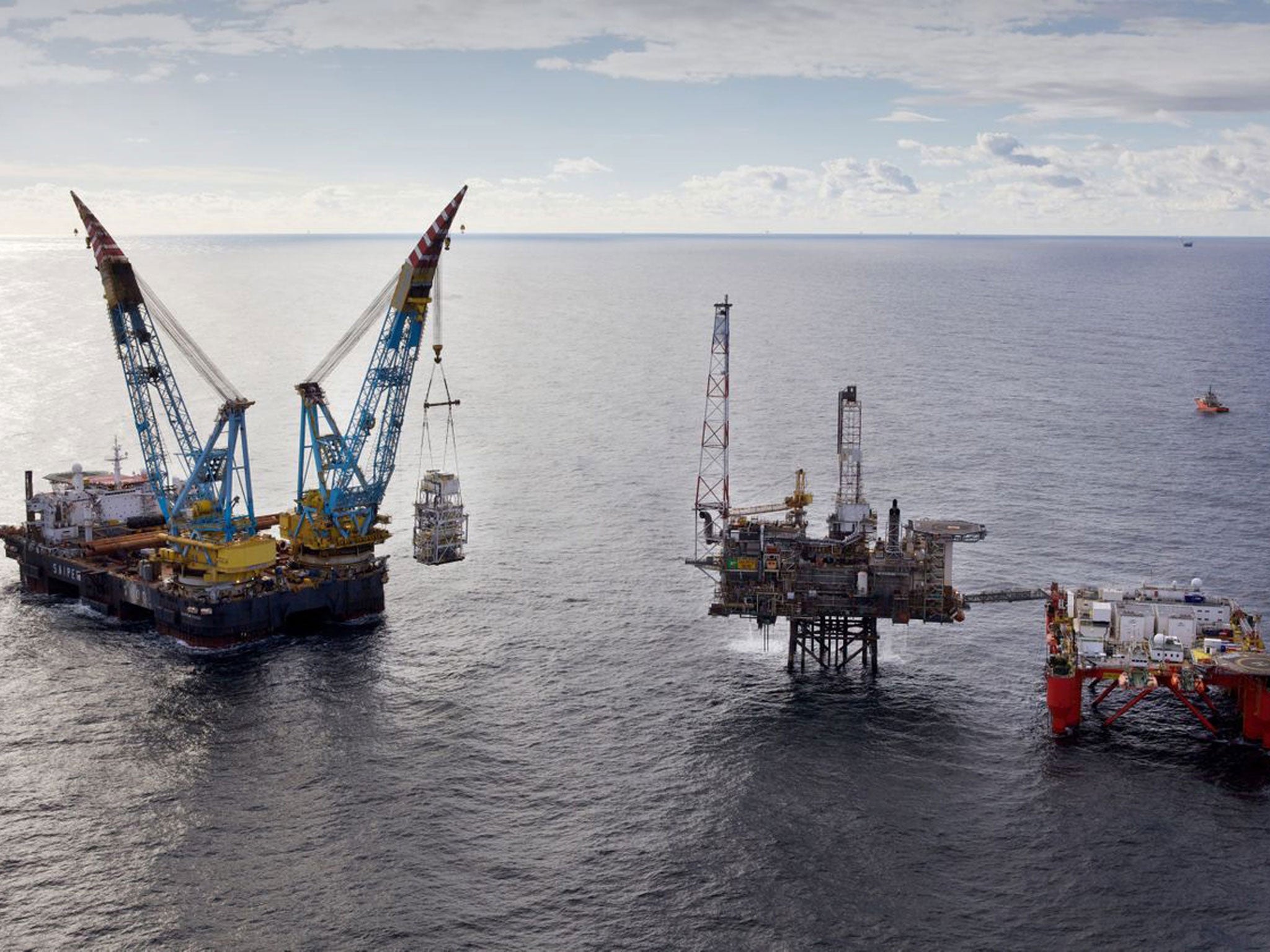Fall in North Sea revenue is £8bn blow for SNP
Independence plans for Scotland rely heavily on gas and oil revenue

An £8bn fall in projected revenues from the UK's oil and gas industry could critically damage Scotland's chances of surviving as a viable independent state, it was claimed last night.
The Government's spending watchdog last week slashed billions off the amount it expects to come from the UK's oil and gas resources, the vast majority of which lie beneath Scottish waters, over the next five years.
The Office for Budget Responsibility (OBR) blamed falling production and higher spending on offshore fields for the decline – from £38.2bn to £29.5bn – in the amount of tax receipts it expects to come from oil and gas resources in the period to 2017.
The fall in expectations, since the last OBR projections in March, is a blow for the Scottish National Party (SNP), which has laid claim to at least 90 per cent of the UK's North Sea energy reserves. The First Minister, Alex Salmond, has leant heavily on claims that "Scotland's oil" could help his nation to thrive as an independent state.
The last SNP manifesto stated: "During 2008-09, in the middle of the recent severe recession, Scotland was in surplus to the tune of £1.3bn, compared to a UK deficit of £48.9bn. Just think what we could do to tackle poverty and create jobs in Scotland with responsibility for these resources."
But the new estimates raise fresh concerns over the reliability of the sector as a cash cow. The OBR expects £2.4bn less to come from oil and gas in the year before the independence referendum, pencilled in for late 2014 – and £4bn less than predicted in what could be the first three years of an independent Scottish state.
The former UK chancellor Alistair Darling, who heads the all-party pro-UK campaign, Better Together, last night said the OBR figures laid bare the dangers of Scotland basing a long-term economic policy on a "source that is volatile and depleting". He said: "The common theme of all the data... is that North Sea revenues are buoyant because prices are high. But these represent only 1 or 2 per cent of the UK's gross national product, while in Scotland the figure is more like 10 to 20 per cent."
The latest OBR "Economic and Fiscal Outlook" stated that UK oil and gas revenues are expected to fall by 35 per cent in this financial year, compared with the previous 12 months. But it added: "Oil and gas revenues are expected to decline over the remainder of the forecast period from £7.3bn in 2012-13 to £4.4bn in 2017-18. The main driver of this decline in receipts is a fall in oil and gas prices."
An SNP spokesperson said the OBR's forecasts for oil prices were "pessimistic relative to many other forecasts". He added: "The [Institute for Fiscal Studies] have already confirmed Scotland is more than able to pay our way with public spending offset by revenues raised in Scotland Ω with the appropriate share of North Sea revenues, Scotland's public finances have been stronger than the UK's in every year from 2006-07 to 2010-11, with an average fiscal deficit lower than the UK's since 2000.
"With 24 billion barrels of oil and gas with a wholesale value of £1.5tn still to be extracted from the North Sea, this will continue to be a significant source of revenue to Scotland for decades; each percentage point increase in recoverable reserves from the North Sea will result in a rise in Scottish economic output of £89bn and... £22bn of tax revenue."
Join our commenting forum
Join thought-provoking conversations, follow other Independent readers and see their replies
Comments
Bookmark popover
Removed from bookmarks